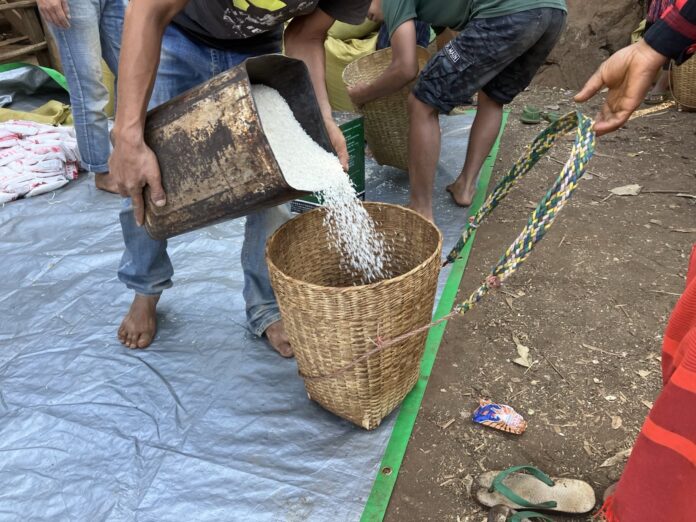By Kantarawaddy Times
Due to heavy monsoon floods, thousands of acres of farmland along the Karenni-Shan border have been destroyed, raising concerns about food security in 2025. In response, the Interim Executive Council (IEC) announced plans to restrict the trade of locally produced goods beyond certain areas within the state.
Previously, for internal food security, only two bags of rice per shipment were allowed to be transported from Dee Maw Hso Township to areas like Parsaung and Mawchi. However, due to the recent flooding, which severely damaged rice fields, the IEC stated that trade restrictions on rice and other agricultural products will be tightened further.
“This is not about lacking compassion for people in other areas. If needed, rice can still be imported from other border regions. That is possible. However, if we start exporting rice and paddy from areas like Dee Maw Hso and around Loikaw to other states or regions, it will cause severe hardship for the local communities here,” said Khu Plu Reh, the General Secretary of the Interim Executive Council (IEC).
Following the 2021 military coup, conflicts have intensified in Karenni State, particularly around Loikaw. Ongoing clashes have led to frequent road blockages, further disrupting the transportation of goods. The military junta has also imposed restrictions on the import of rice and medicine, which have been in place for over three years.
Local residents reported that transportation delays and rising commodity prices have exacerbated challenges. In 2023, the IEC began setting price controls on locally produced rice to stabilize the market. However, the recent floods have submerged most of the monsoon rice fields, making it impossible to harvest the crops, which has fueled fears of food shortages for the upcoming year.
“I’m most worried about the possibility of food scarcity next year. Many of our rice fields are still underwater, and with the rising prices, we may not be able to afford to buy rice,” said Maw Htay Myar, a farmer from Nan Mie Khon township who cultivated five acres of paddy.
The IEC also stated that it would coordinate closely with local administrative authorities and armed groups to enforce the trade restrictions effectively and ensure that food security measures are maintained throughout the region.




